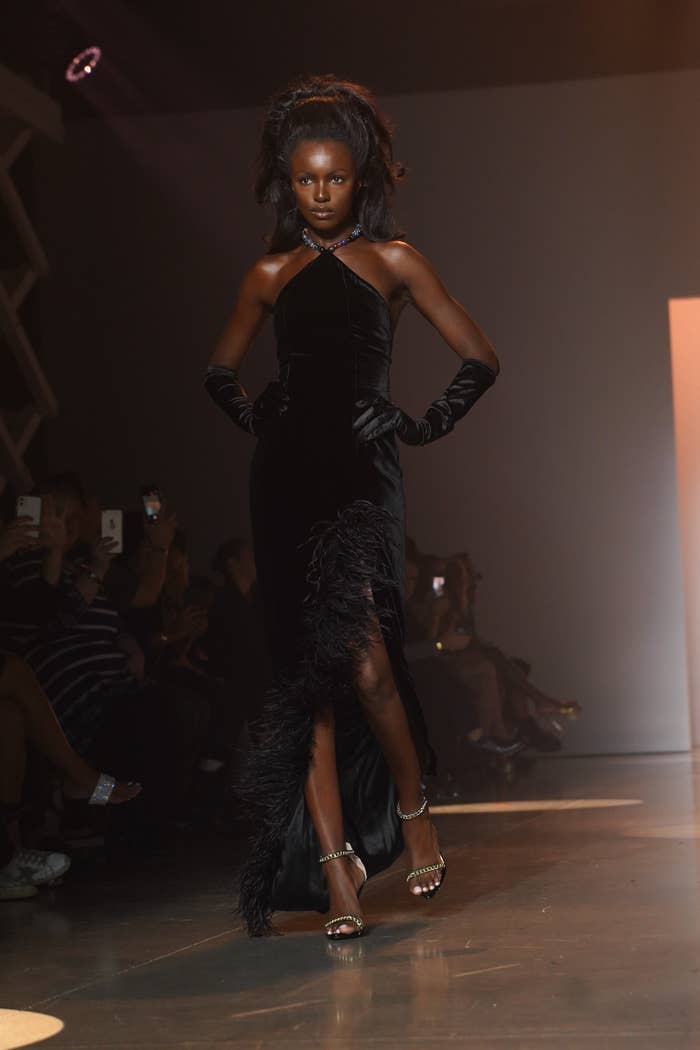
Black British top model Leomie Anderson revealed her experience at a runway show where the glam team was ill-equipped to work with her skin tone and hair type in a video recap viewed nearly 3 million times on TikTok and Twitter.
“Being a black model is doing other people’s jobs and not being paid for the extra work looool,” Anderson wrote on Twitter.
Being a black model is doing other people’s jobs and not being paid for the extra work looool
Black beauty professionals told BuzzFeed News that Anderson’s video highlighted that the world of backstage fashion continues to be a space where the teams responsible for making models look their best are often limited in their abilities to work with the skin and hair of people of color — and Black professionals struggle to get hired.
Anderson, 28, appeared in the Christian Cowan runway show at New York Fashion Week last month and shared her experience in the TikTok uploaded Sunday.
First, a makeup artist applied an ill-matching foundation, then a second artist failed to rectify it. Anderson said she “felt ugly AF” and redid her own face in 10 minutes before walking down the runway.
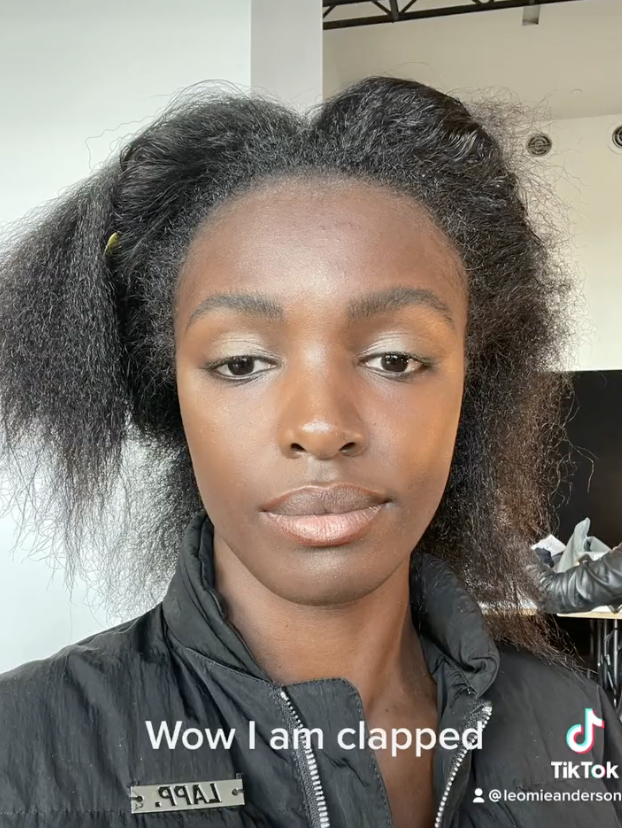
The clip also captured how her hair was roughly handled until a team of three hairstylists descended to dry and style it.
The distressing experience left Anderson feeling that she “wanted to go home,” and she pleaded for fashion houses to hire more Black hair and makeup artists so other models wouldn’t have to endure similar treatment.
Anderson’s experience does not represent an anomaly but rather a risk associated with the job. Model Londone Myers shared a similar experience at Paris Fashion Week in 2017, and the hashtag #BlackModelsMatter created by model Ashley Chew routinely highlights the plight of Black models in their line of work.
According to analysis by the Fashion Spot, last month’s New York Fashion Week Spring 2022 was the second-most-diverse season on record with 55.5% models of color. And though the Christian Cowan runway show featured an array of models from different ethnicities and featuring various body types, the issues raised by Anderson brought to full view the seeming disconnect taking place behind the scenes.
The British brand has been a favorite among Black women including Lizzo, Saweetie, and Cardi B. Christian Cowan did not respond to repeated requests for comment about Anderson’s experience.
Celebrity makeup artist Esther Edeme described the contents of Anderson’s TikTok as “typical.” (Edeme and the other beauty professionals interviewed in this article did not work at the Christian Cowan show.)
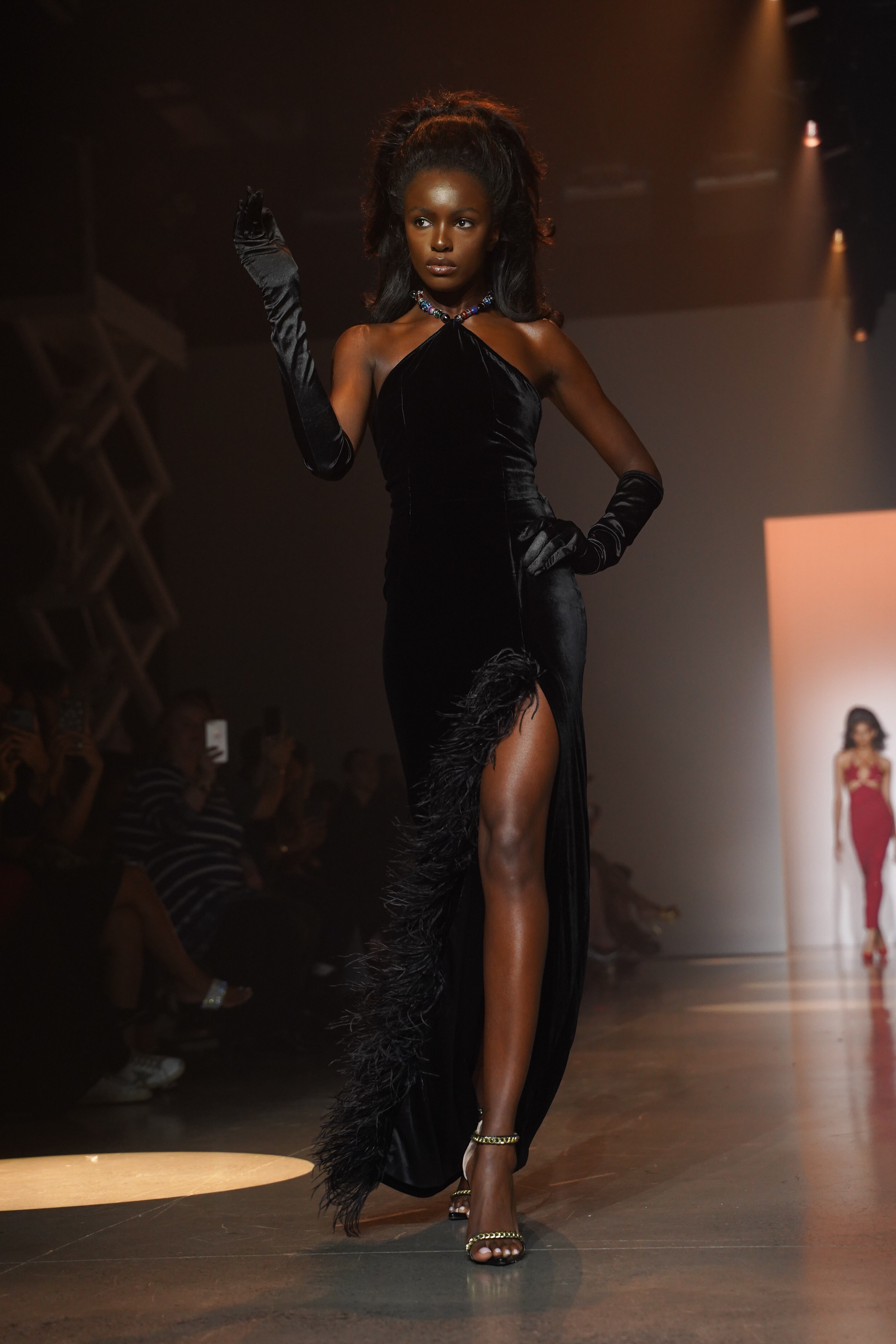
“This isn’t new really. I’m not shocked,” Edeme, whose clients include rapper Eve, model Jourdan Dunn, and singer Ari Lennox, told BuzzFeed News.
Over the course of her decade-plus career, Anderson, a Victoria’s Secret model, has routinely campaigned for change and shared horror stories, including an incident with a hairstylist who she said threatened to ruin her career after she protested having particular products put in her hair.
And she’s learned to advocate for herself. Makeup artist Edeme gave Anderson one-on-one lessons in May of this year to ensure she could always rectify makeup mishaps.
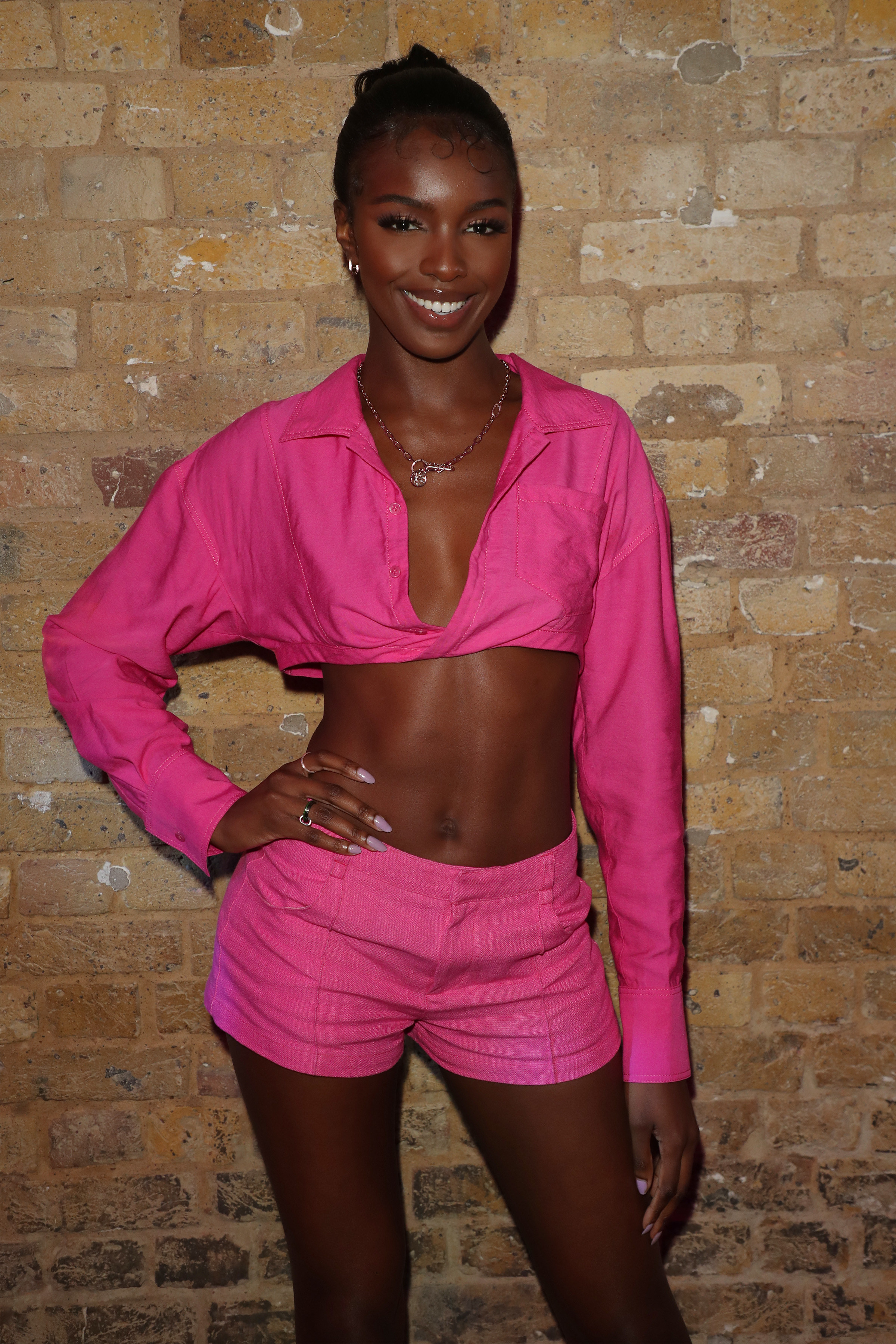
“If they mess it up, she knows what to do — she knows what to add, what to remove,” Edeme said. “These are things that she's had to train to do, and she shouldn't have to do any of that, because she would get on set and the other white makeup artists are there with their white talent and they're fine.”
The issue doesn’t just impact the models — Edeme and other Black beauty professionals noted that despite sweeping pledges about diversity and inclusion, “backstage” remains a notoriously difficult space to crack across the industry, riddled with nepotism, hostile work environments, and pay disparity.
Even with her impressive roster of clients, Edeme said that securing major fashion jobs is still a challenge, and when opportunities do come about, often only one Black person gets hired.
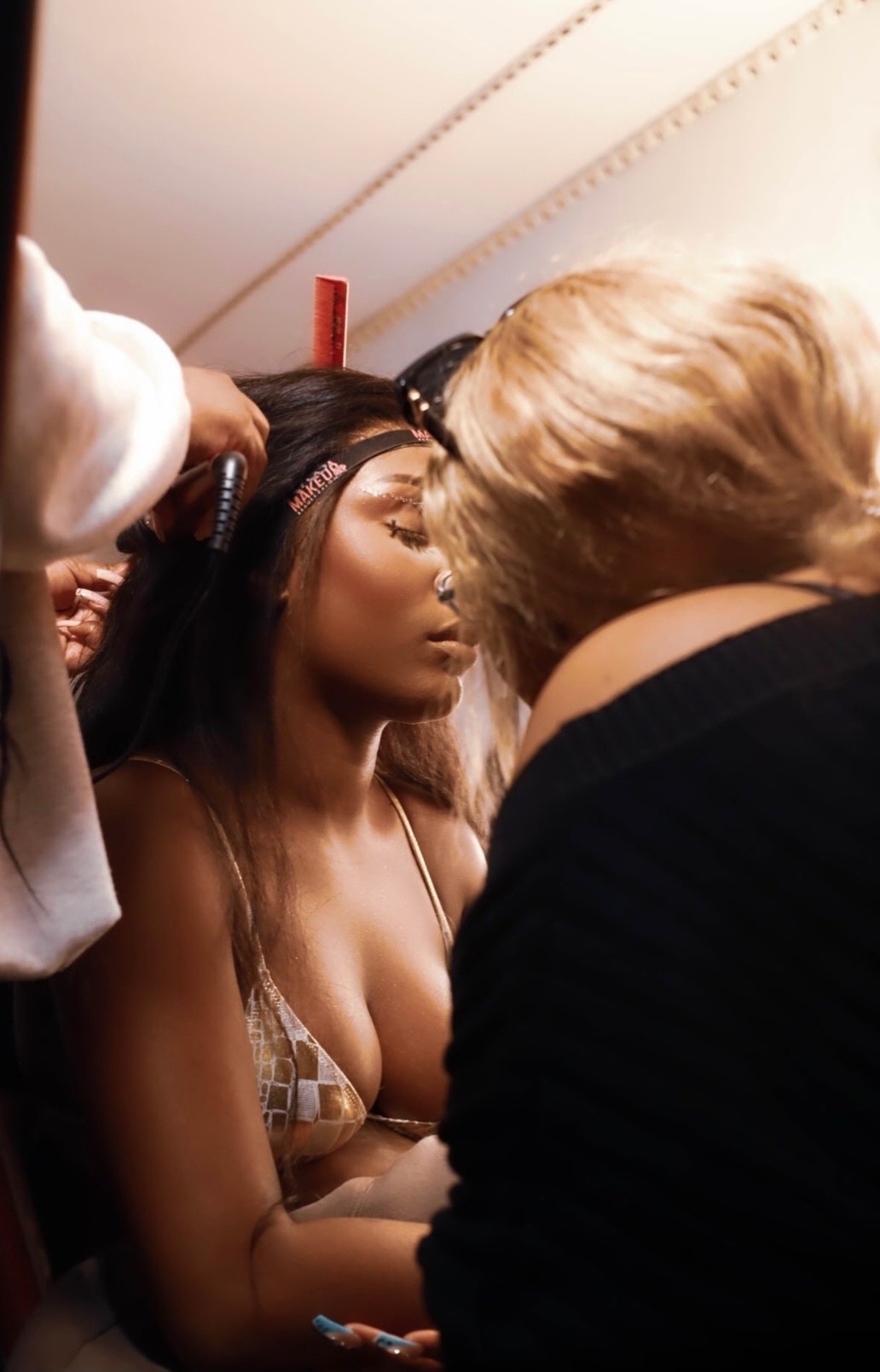
“Sometimes it is a very hostile situation,” Edeme said. “It's giving very much ‘secondary school where you're the only Black girl in your class of white girls.’”
In addition, Edeme said on occasion she has received less money than her white peers.
“Sometimes we don't get paid as much as the white makeup artists in these spaces either, but you don't know that until you've spoken to them after,” she said.
For veteran hairstylist Dionne Smith, the challenge of being in the fashion world for Black talent is the very low glass ceiling.
She told BuzzFeed News that after two years of assisting on hair at major fashion shows — including those of Vivienne Westwood and Amanda Wakeley — she walked away due to feeling like there was “no room for growth.”
“Most of the time when you get put in those positions, it's never the top level — you're always just assisting somebody else, even though you end up doing most of the work,” Smith said.
Today her clients include Regina King, Marvel actor Teyonah Parris, and Little Mix singer Leigh-Anne Pinnock, she said.
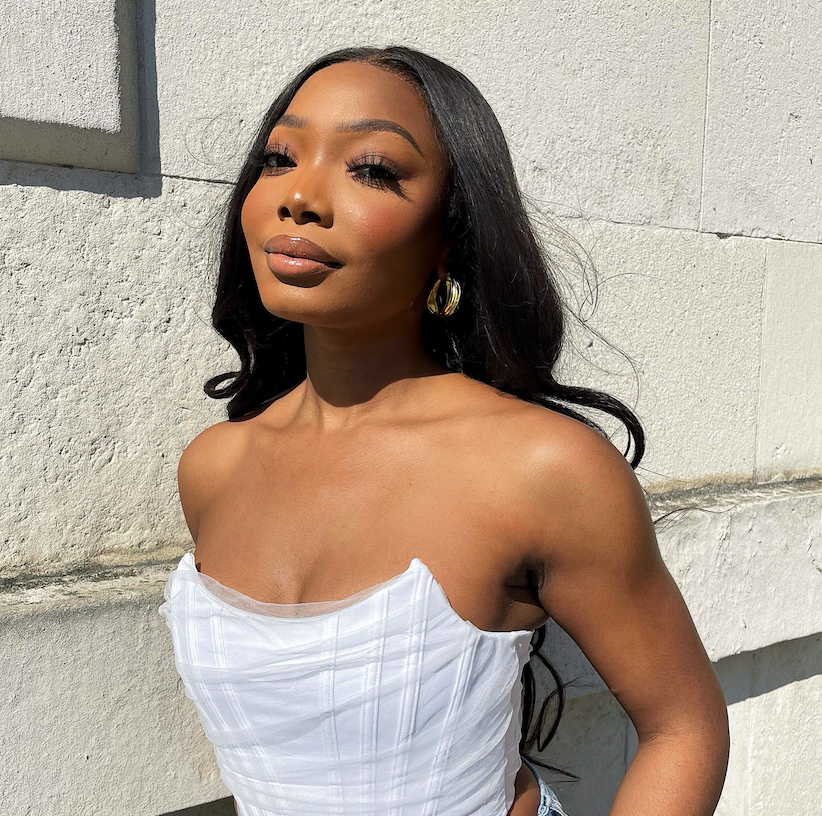
As a Black makeup artist, showing that you can work on a broad spectrum of ethnicities is critical if you want to book regular work, but the expectation only appears to go one way, said Zakiyah Shani, a makeup artist based in London.
“I've worked in certain jobs and I'll see an artist’s kit, and it's literally just catered for white to light-skinned models,” she told BuzzFeed News. “I just think that's crazy that you're so confident that you don't even think you'll encounter Black talent today.”
And industry professionals are pushing back against institutional racism. Show Division, a leading production company for backstage logistics founded by former model Celia Sears, runs workshops with two clear mandates to make the behind-the-scenes culture more inclusive. First, all hairstylists must prove to be “proficient” in textured hair, and second, all makeup artists must arrive backstage with a full range of products to accommodate all skin tones.
The organization represents 250 artists, including session stylists, makeup artists, and nail technicians, and hopes to encourage fashion bodies around the world to follow its lead.
But, as Shani noted, a large portion of opportunities rarely make their way to Black makeup artists. She said a culture of gatekeeping and nepotism — with roles often not advertised publicly or passed between friends and family of white professionals — has left Black talent on the outside despite a growing need for their skills as runways and magazine covers diversify.
Black hair and beauty practitioners have resorted to creating their own networks and rely heavily on big-name Black actors or models advocating for their inclusion.
“It’s never the booker, it's never the agency,” Edeme said. “It's actually always the talent that insists on having me.”
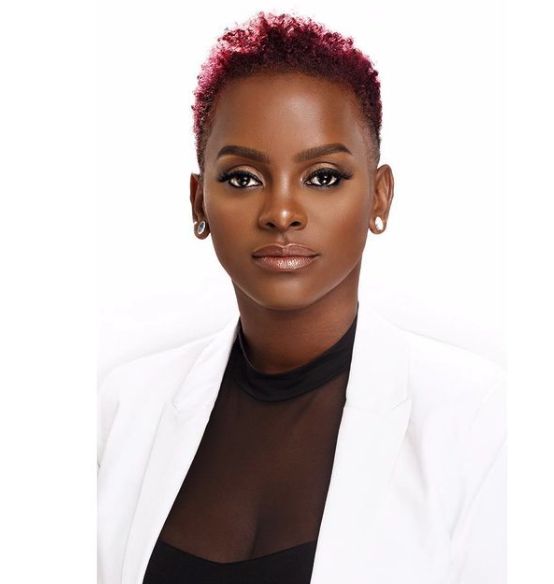
Similarly, Smith's latest work opportunity on the set of a major movie franchise has been at the request of the film’s lead actor.
“She requested that she had somebody Black, somebody that understood natural hair,” Smith said. “If she didn't put her foot down, I definitely wouldn't have been here.”
